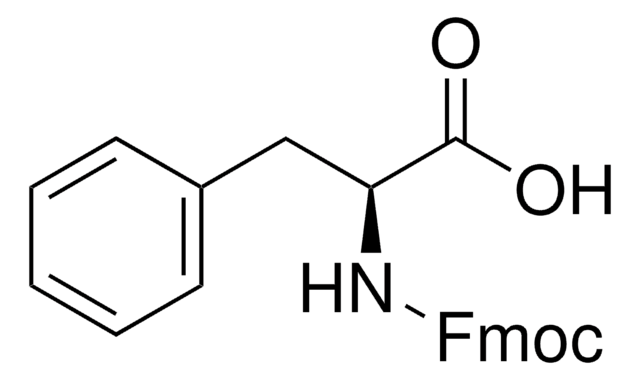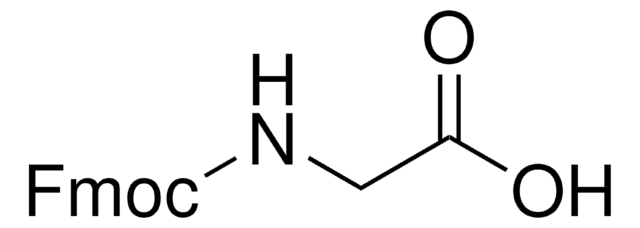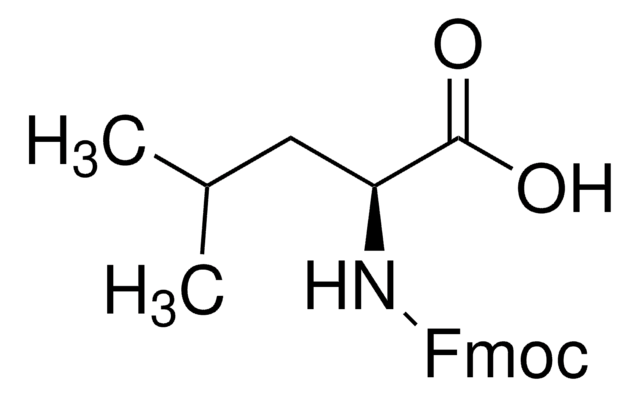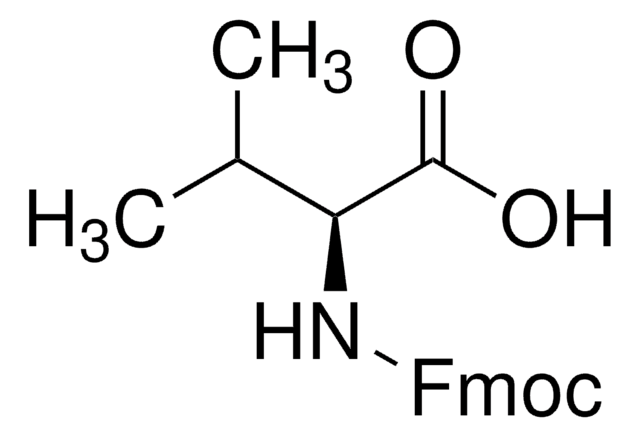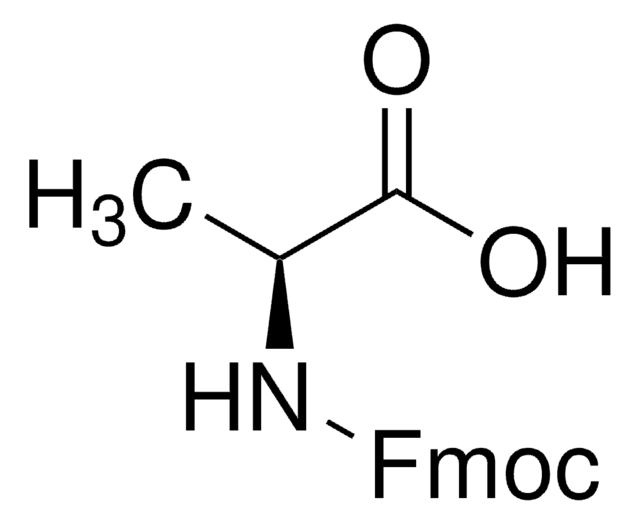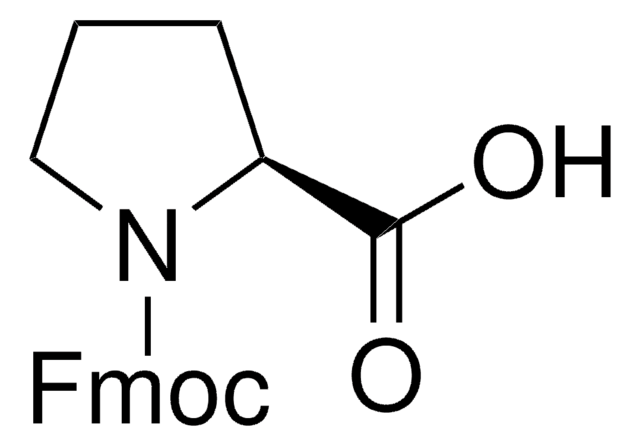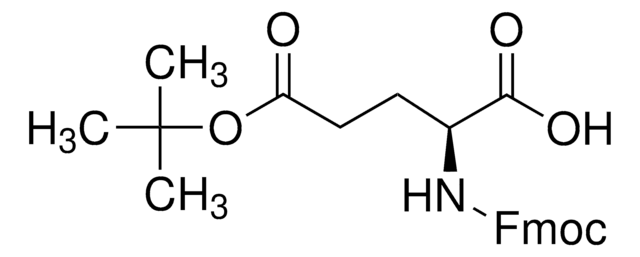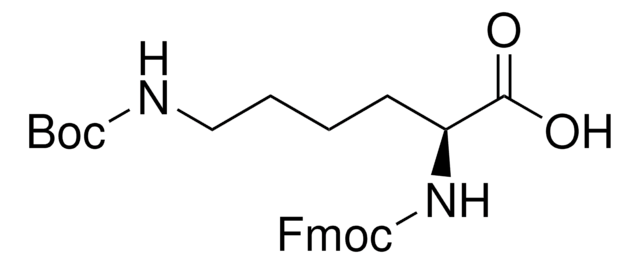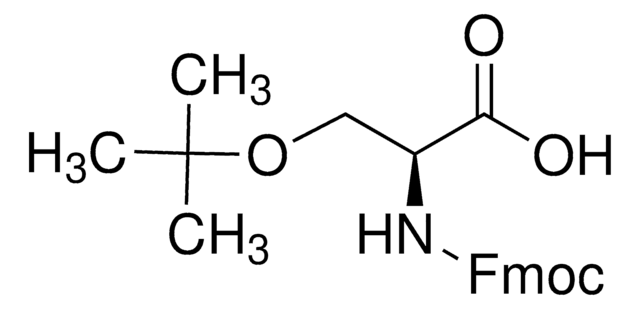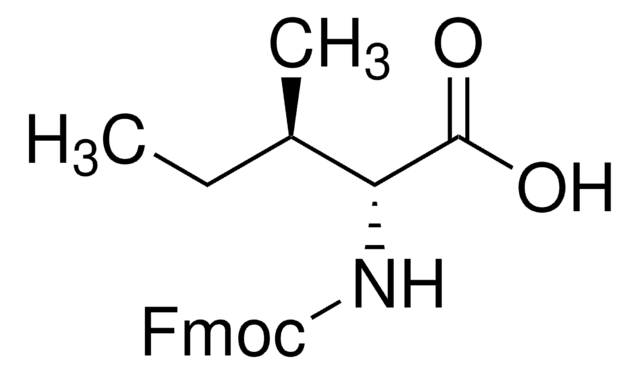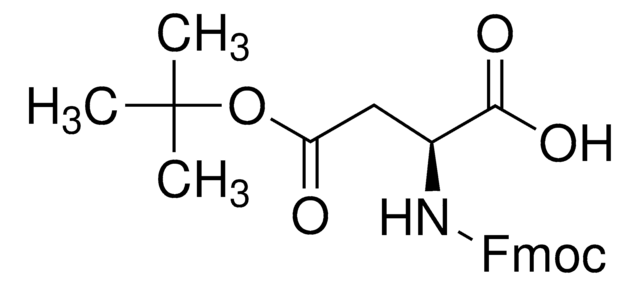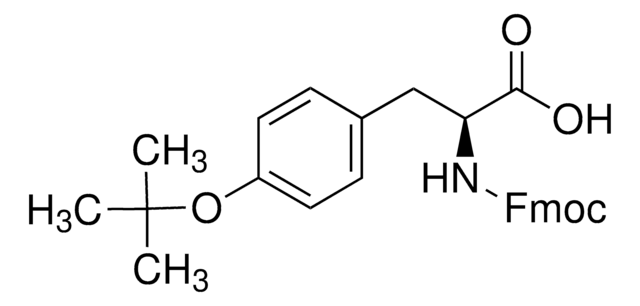47628
Fmoc-Ile-OH
≥98.0% (T)
Synonyme(s) :
N-(9-Fluorenylmethoxycarbonyl)-L-isoleucine, Fmoc-L-isoleucine
About This Item
Produits recommandés
Niveau de qualité
Pureté
≥98.0% (T)
Forme
solid
Activité optique
[α]20/D −12±1°, c = 1% in DMF
Capacité de réaction
reaction type: C-H Activation
reaction type: Fmoc solid-phase peptide synthesis
Pertinence de la réaction
reagent type: ligand
reaction type: Peptide Synthesis
Pf
145-147 °C (lit.)
Application(s)
peptide synthesis
Groupe fonctionnel
Fmoc
amine
carboxylic acid
Température de stockage
2-8°C
Chaîne SMILES
CC[C@H](C)[C@H](NC(=O)OCC1c2ccccc2-c3ccccc13)C(O)=O
InChI
1S/C21H23NO4/c1-3-13(2)19(20(23)24)22-21(25)26-12-18-16-10-6-4-8-14(16)15-9-5-7-11-17(15)18/h4-11,13,18-19H,3,12H2,1-2H3,(H,22,25)(H,23,24)/t13-,19-/m0/s1
Clé InChI
QXVFEIPAZSXRGM-DJJJIMSYSA-N
Vous recherchez des produits similaires ? Visite Guide de comparaison des produits
Catégories apparentées
Code de la classe de stockage
11 - Combustible Solids
Classe de danger pour l'eau (WGK)
WGK 3
Point d'éclair (°F)
Not applicable
Point d'éclair (°C)
Not applicable
Équipement de protection individuelle
Eyeshields, Gloves, type N95 (US)
Faites votre choix parmi les versions les plus récentes :
Déjà en possession de ce produit ?
Retrouvez la documentation relative aux produits que vous avez récemment achetés dans la Bibliothèque de documents.
Les clients ont également consulté
Articles
With a growing peptide drug market the fast, reliable and uncomplicated synthesis of peptides is of paramount importance.
Notre équipe de scientifiques dispose d'une expérience dans tous les secteurs de la recherche, notamment en sciences de la vie, science des matériaux, synthèse chimique, chromatographie, analyse et dans de nombreux autres domaines..
Contacter notre Service technique